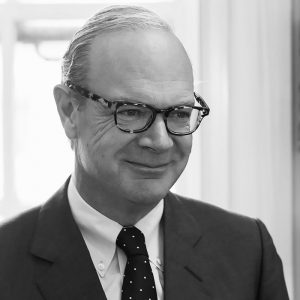
Mark Florman, chairman and CEO of Time Partners
Some years ago, I did some work on the difference in the duties and responsibilities of directors of private companies and directors of public bodies. I noticed that I was one of very few people who had taken an active role in serving on both. Following my participation in the Triennial Review of the Big Lottery Fund and its governance a few years ago, I conducted a comparative analysis between the governance of private companies and public bodies where it became apparent that the latter had more general and often vague requirements when it came to the role of directors. And so last year, I had the great privilege of being asked to work with the Cabinet Office on the development of new principles for the governance of public bodies, including all Departments of State, non-departmental public bodies and quasi-autonomous non-governmental organisations – of which I am immensely proud to see published towards the end of last week.
As set out by the Institute of Directors (IoD), Non-Executive Directors (NED) are appointed to the boards of organisations to bring independence and impartiality, their wide experience, specialist knowledge and personal qualities. These new principles go beyond the “Nolan principles” of public life and set out a recommended 12 essential qualities for NEDs. I believe that it is important not only to understand the principles, but also to really acknowledge why they represent an important progression in public body governance.
A NED brings many things to the table: high amongst them is their invaluable expertise. When sharing this unique knowledge, the NED must act with the best interests of the organisation in mind. As a body that is linked to public services, the advice given must therefore be in line with public interests and with the intention of furthering public good. Moreover, the expertise is to be used as a vehicle to serve the broader mission and duties of the sponsoring Secretary of State and their Department. This will allow the objectives of the organisation to remain on the same path as those of the governmental department with which they are aligned. Finally, the expertise of the NED would be utilised to enable compliance with the statutory duties of the organisation. Again, this is to ensure that the mission and vision of the organisation act in line with public interest and the goals of the relevant government department.
Crucially, it is important for a NED to maintain a sense of independence from the executive. This is in order to allow them to fulfil their role as an objective observer of the organisation: someone who is there to advise from the outside looking in. When devising the principles, this is one that I saw as particularly relevant to ensure that our public bodies are fully and efficiently regulated – both for their and the public’s greater good. The private sector’s clearly defined regulation when it comes to their directors of course influences the public sphere and, rightly, is managed so that what we may not be able to see behind closed doors is still acting for the best intentions. When it comes to the independence of NEDs of our public bodies, I felt even more so that we needed clear regulation to allow it to fully succeed. This includes the duty to monitor the performance of the organisation and report such performance to the public in a regular manner. We live in a world of information overload and people expect transparency and data on demand. It is therefore the duty of the NED to scrutinise the organisation and allow this data to be brought clearly to the public.
Closely related to this, it must be clear that the role of the NED is to support the organisation in its goals and allow it to flourish. The scrutiny is needed, but only so far as its intended outcome is to ensure the continued success and development of the organisation. This means support in its clearest sense, allowing management to feel heard and valued. The intention is to create and promote a culture that respects diversity of people and opinions. As a public body, the organisation should reflect the public whom it serves, and it is the role of a NED to advocate for this reflection. There are also more hands-on aspects that come under this umbrella of support, such as participating and endorsing routine reviews within the organisation. This allows for a healthy appraisal of the direction of the body and means potential issues will not go unnoticed over a long period of time.
Ultimately, what does this all mean? Well, I believe that the principles will for one thing show that our semi-public administrative bodies cannot live a life alone – they must work in tandem with their Departments of State to ensure a complete alignment of vision and mission. If the principles are followed fully and effectively, we should end up driving much greater efficiency across the civil service and the state overall, driving performance and results for all citizens.
Mark Florman is the chairman and CEO of Time Partners, an investment and strategic advisory firm, focusing on private markets globally. They help investors, families and entrepreneurs invest across the private capital landscape, aligning their investment strategy with their goals and beliefs. Headquartered in London, Time Partners sports a network of international partners and offices in Los Angeles, Houston, New York, Hamburg, Athens, Cape Town, Singapore, Tokyo and New Zealand.







Objectivity is the key here. Quite right.